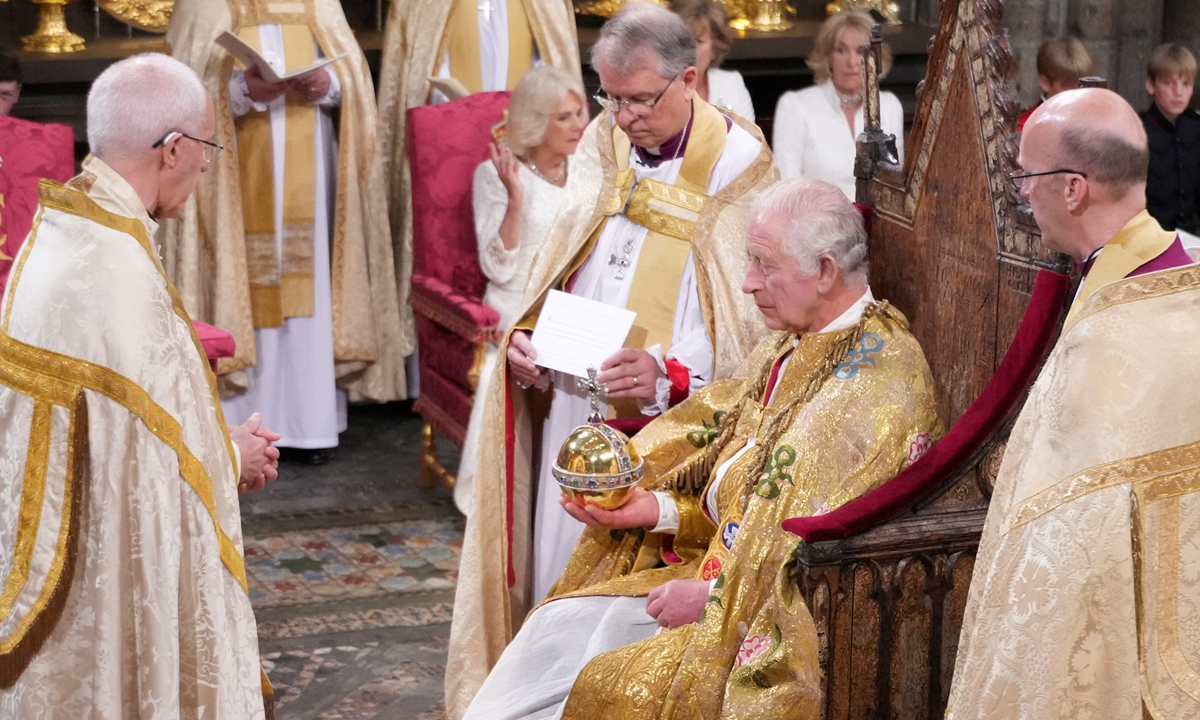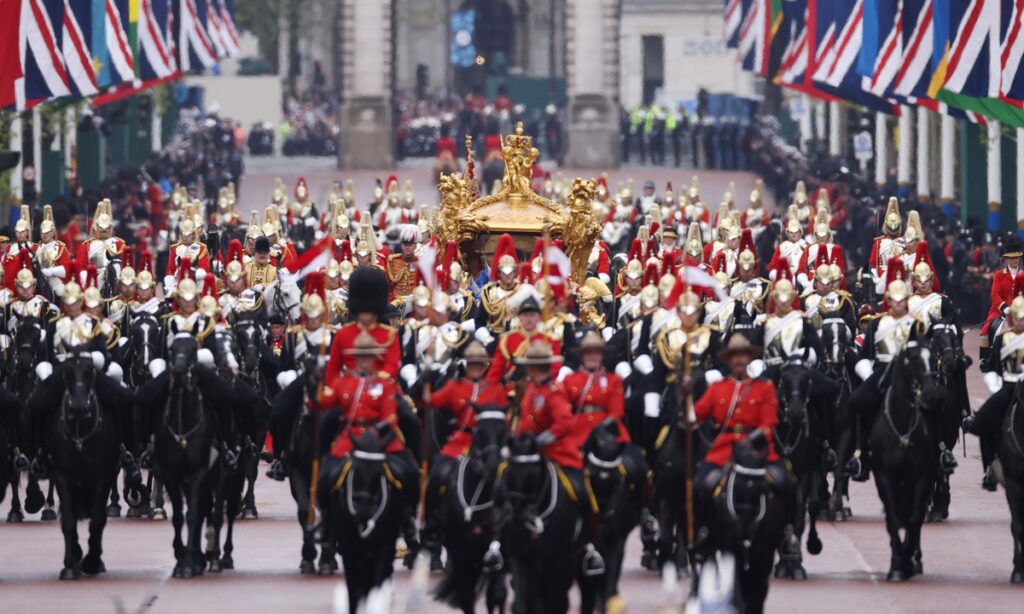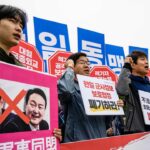UK needs cooperation with China, but is missing out trend of ‘renewing ties’
As the UK witnessed another coronation on Saturday, seven decades after the late Queen Elizabeth II was crowned, Chinese observers said on Sunday that despite a day of great pomp and ceremony, the newly crowned King Charles III is the monarch of a vastly different kingdom to the empire his mother presided over when she became Queen in 1952.
Chinese President Xi Jinping and his wife Peng Liyuan on Saturday sent a message congratulating King Charles and Queen Camilla on his coronation to the British throne.
China and Britain, both permanent members of the UN Security Council, should take a long-term and strategic view to jointly promote the historical trend of peace, development and win-win cooperation, Xi and Peng said in the joint message.
Upon invitation, visiting Chinese Vice President Han Zheng attended the coronation ceremony of Charles and other related activities from Friday to Saturday, the Xinhua News Agency reported.
During his visit to the UK, Han had brief meetings with British Prime Minister Rishi Sunak, William, Prince of Wales, and held talks with Deputy Prime Minister Oliver Dowden.
Han said that in the era of globalization, the economies of different countries are deeply connected. “China is continuing to promote high-quality development and will further promote high-level opening-up, and is willing to strengthen cooperation with the British side for mutual benefit and common development,” the Xinhua News Agency reported.
King Charles III, who became monarch after Queen Elizabeth II’s death in September, formally received St. Edward’s Crown in a religion-infused ceremony during which he was anointed with holy oil behind a screen. The British king said before the packed Gothic cathedral that he had come “not to be served, but to serve.”

King Charles III is presented with The Sovereign’s Orb by The Archbishop of Canterbury the Most Reverend Justin Welby during his coronation ceremony at Westminster Abbey in London. Photo: VCG
Some 2,000 dignitaries, spiritual leaders and celebrities watched on, with thousands gathering on London’s streets and millions more tuning in around the globe, British media reported.
The coronation offered a royal spectacle for modern audiences of the kind that Britain still stages: hours long pageantry that featured traditional robes, statement headpieces, and array of colorful outfits – a media feast watched by the large part of the world.
However, this coronation has also ushered UK into a new era, a turning point as the country has descended from a glorious empire, inherited by Queen Elizabeth II, to a country struggling with a cost-of-living crisis in part caused by the lingering fallout of Brexit, surging inflation and the impact of Russia-Ukraine crisis, observers said.
Now mired in a deep cost-of-living crisis and a nation whose influence is fading so fast that many nations in the king’s realm are eager to say goodbye, the UK has become a country struggling to regain its former splendor as a world leader. Instead, it has to awkwardly settle for becoming a US vassal, according to the observers.
They also pointed out that the crisis-laden UK has come to realize that disengaging with China is not in line with the national interests of the UK, yet the British government still lacks a comprehensive and objective China policy. The UK is missing out on the wave of relationships being renewed between China and European countries, and that may not be good for the UK.
The coronation may seek to revive the country’s old traditions and elevate the confidence of Britons in the face of current quandaries, but the effect may be short-lived, Cui Hongjian, director of the Department of European Studies at the China Institute of International Studies, told the Global Times on Sunday.
Waking up from the great fanfare today, Britons and UK politicians may face cold, harsh facts in divining where the future lies for the UK, said Li Guanjie, a research fellow with the Shanghai Academy of Global Governance and Area Studies, under the Shanghai International Studies University. Li said that Charles has taken over “an empire without its empire status.”
As people gathered in central London on Saturday to celebrate the once-in-a-generation occasion, demonstrators wearing yellow T-shirts booed and shouted “Not My King” throughout the morning.
According to a YouGov poll of 2,030 Britons published last week, support for retaining the monarchy sits at 62 percent. However, younger Brits are more likely to want an elected head of state, with just 36 percent of 18-24 year olds wanting to keep the Royals.
The British Royal Family is facing mounting challenges from both outside and inside, as calls to abolish the Royal Family from the country’s republicans persists. In the past, such opposition was assuaged partly by Queen Elizabeth II’s widely respected reputation, Cui said.
He said Charles, by comparison, is a more controversial and less popular figure among Britons and other nations, partly due to his messy divorce with Princess Diana. “He may not live up to his mother. So the challenges to the Royal Family from inside and outside will only become exacerbated.”
Missing out the trend
Last month, Britain’s foreign minister James Cleverly told media that Britain should not “pull the shutters down” on China, as it would be counterproductive to the national interest.
It seems that UK politicians are still debating the nation’s China policy. It is about time for the UK to demonstrate a more comprehensive and objective understanding of China and stabilize the bilateral ties, otherwise the UK will miss out on the trend of “relationship renewals” between China and European countries, said Cui, referring to the frequent engagements between Chinese and European officials recently.
No high-level UK official has visited China since Sunak took office last October.
Experts said that while the UK has come to realize “decoupling” with China is not in line with its interests, the country is still willing to follow the US’ anti-China policy closely.
But history has already taught the UK that sticking to an outmoded script would only disconnect the country from new trends, therefore the UK needs to adjust its foreign policies and fix its domestic problems before it descends even more, analysts said.
(Global Times)




